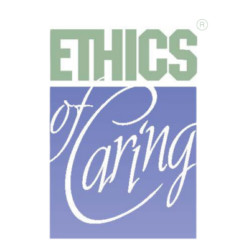“Our professional values dictate a commitment to justice in harmony with our dedication to autonomy, fidelity, non-maleficence, beneficence, and others. Collectively, nursing professionals values serve as a magnet for our moral compass.”

Kenya Beard, EdD, AGACNP, CNE, ANEF, FAAN is a national nurse leader and educator with over 20 years of experience helping students pass the NCLEX. Her research and publications focus on strengthening the capacity of academia to graduate a diverse workforce that’s more prepared to advance health equity.
Click to Share this 2022 Spotlight!
Q:
In your presentation at FON 2030 Seattle Town Hall, you mentioned health equity is a fundamental right denied to many and we know that COVID-19 made this even more evident. What are the principal ethical considerations for nursing coming out of the pandemic?
At the societal level, the ethical consideration for nursing is to examine the extent to which we embody our professional value of JUSTICE (social justice) and use justice to inform how we respond to and mitigate health care disparities. The nursing profession must uphold nursing values and not just point-of-care values like autonomy. Our professional values dictate a commitment to justice in harmony with our dedication to autonomy, fidelity, non-maleficence, beneficence, and others. Collectively, nursing’s professional values serve as a magnet for our moral compass. Without justice, we derail efforts to provide high-quality health care. All nurses must demonstrate a commitment to our professional values in and outside of our practice, recognize injustices, and remove barriers to achieve health equity.
– Kenya Beard
Q:
You speak of the “social mission” of nursing education. What does that mean, and what are the implications for the future of nursing practice?
Social mission in the 21st century is a construct that comes from Dr. Fitzhugh Mullan. It considers all the ways that schools, faculty, leaders, and students address healthcare disparities and advances health equity – from the mission statement, policies, and practices to one’s performance. How do we prepare students to promote justice in health care? Do we provide clinical experiences that explain upstream factors that undermine health equity and contribute to health disparities? Are we graduating students who mirror the population served? Racial and ethnic diversity can improve patient outcomes and is critical to advancing equity in health care. However, we have one foot on the gas when we seek to accelerate diversity initiatives and the other foot on the brakes when we fail to examine and reconcile the policies and practices that brought us to where we are today.
– Kenya Beard
Q:
What are examples of structural racism in our U.S. healthcare system, and how can nurses begin to address these?
Structural racism is not unique to the healthcare system. The metastatic roots of racism connect to and feed off the education, employment, justice, and housing system, continuously operating in normalized ways. We must ask critical questions and examine outcomes to recognize and understand how racism operates. To what extent have we created a society that meets the health care needs of all individuals? Why were racial health inequities amplified during the pandemic? When resources were limited, who decided how to distribute resources? Who is harmed or benefits from current policies? Structural racism in health care deprives some groups of their ability to achieve their highest level of health and does not exist in a vacuum. We must examine how it shows up and continues to play out in the systems we inherited.
Nursing is the largest health care discipline and is well equipped to address inequities. At one time, societal factors conditioned nurse leaders to endorse discriminatory practices. As a result, minoritized groups were denied access to nursing education. As our profession advanced, so too did our professional and moral obligations. How can we learn from past experiences and use it to inform what needs to happen today? Are we calling out inequities and creating “safe spaces” for critical questions? We must find our collective voice, shaped by professional values, to bring about needed change. Nurses are better positioned to address structural racism when we demonstrate our professional values and ethics.
– Kenya Beard
Q:
What are some highlights of your nursing career that you are most proud of?
I have had numerous opportunities to empower patients and students to use their voices to reconcile inequities. A highlight of my career is creating safe spaces for students, faculty, and others. I welcome respectful disagreement that reflects humility and emotional intelligence. I am most proud of supporting diversity, equity, and inclusion initiatives and creating an ethos that allows discourse to address and remedy health care inequities.
– Kenya Beard
Q:
Is there anything else you would like to share?
Nursing is a complex and humbling profession. Every day we must work to align our actions with our professional values. I look forward to the conference, hearing new ideas, and co-creating ways to advance not only the profession but the health of our nation.
